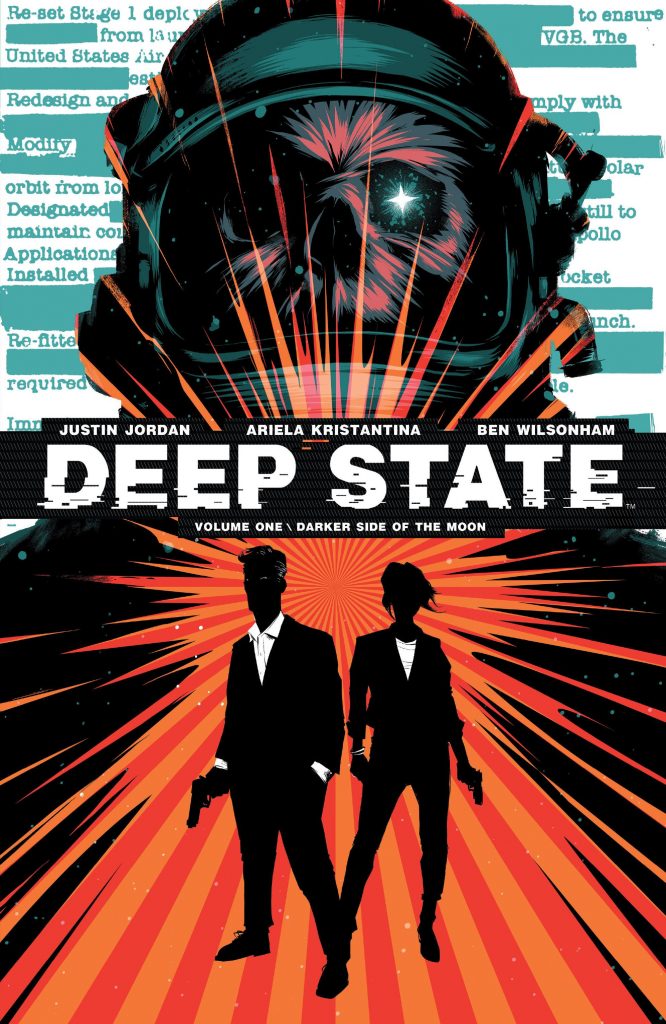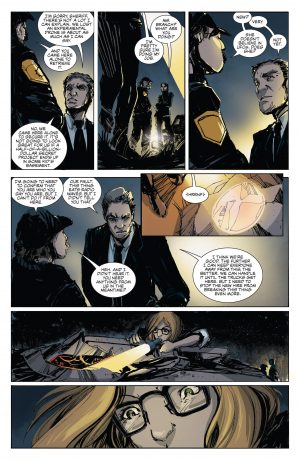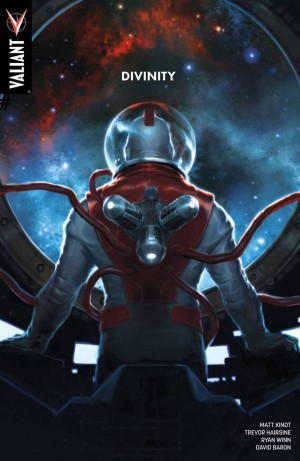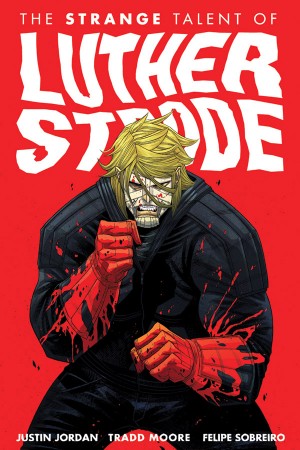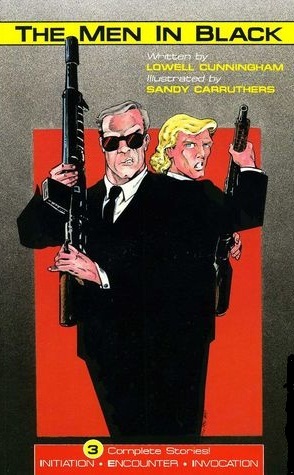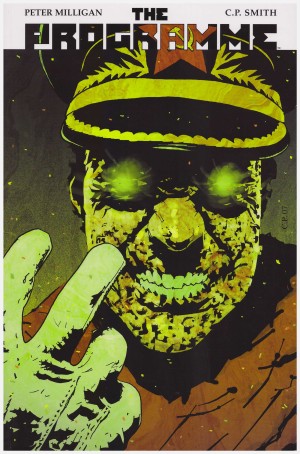Review by Ian Keogh
Deep State delves into the deep, dark corners where reality is far more fantastic than any conspiracy theorist’s conjecture, and where it’s not just men in black working in secret. The way into Justin Jordan’s conundrum is via Ms Branch, a government agent so dedicated she investigates cold cases dating from before her birth. Returning home one night, John Harrow is sitting in her flat in his black suit poised to make an offer she has no hesitation in accepting. We have our Mulder and Scully.
Their problem concerns the space programme. As explained, there’s no way the US would make such a public display of sending people to the moon in 1969 if there was any chance the mission would fail. Apollo 11 was in fact the third moon landing, and in Deep State’s world it was the Soviet Union who made it to the moon first. It didn’t go to plan. All these years later something has landed in a rural US town, and containment might not be enough.
Ariela Kristantina has a flair for layouts, ensuring that the many pages of characters engaged in discussion have a variety of viewpoints, and as the story expands she’s equal to both the stranger and more action oriented images required. She’s not yet the finished article as an artist however, as she has problems with figures and expressions.
Jordan loses marks for originality, but where Deep State scores above X-Files is with regard to an unlimited visual budget. He can be explicit about threats rather than hiding them in shadows until the finale, although some of that is required to foster the initial suspense. He also delves deeper into disturbing territory, with some pages not for those of a sensitive disposition, as Jordan’s leads may be government agents, but at its heart Darker Side of the Moon is a horror story. Unfortunately it’s one with very few surprises, rigidly following the last man standing template, and in broad terms predictable until the very end, when Jordan drops a great cliffhanger ending leading into Systems of Control.
That shows real promise, but was it worth plodding through the remainder to get there? Not really.
